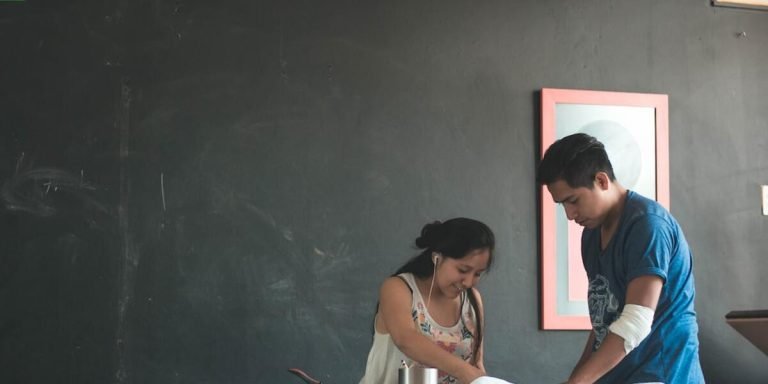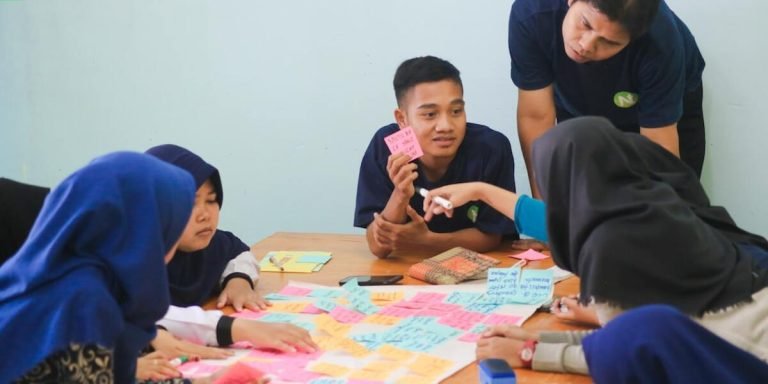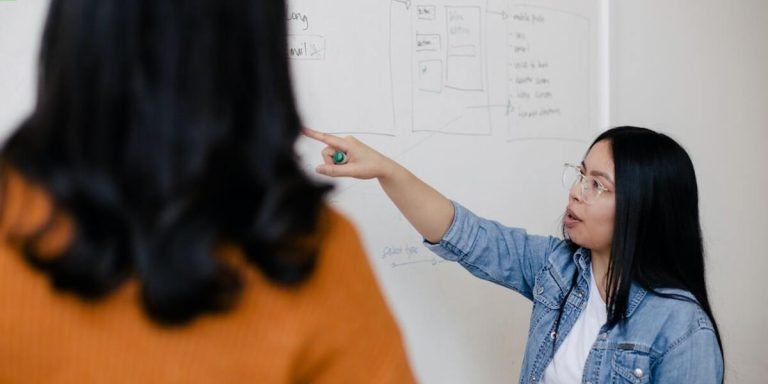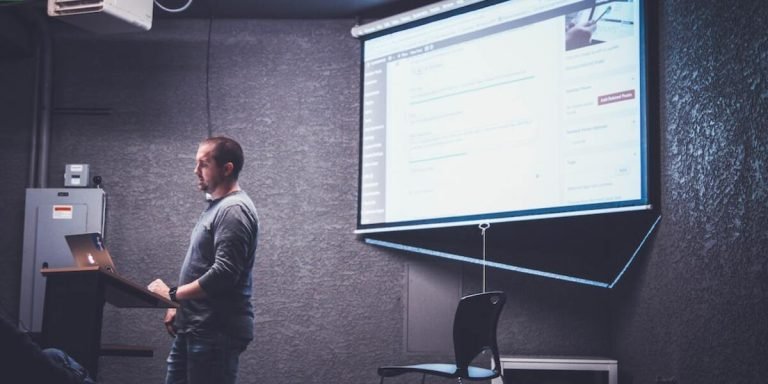Special Education Aide: An In-depth Guide to Their Role in Childhood Learning
The role of a “special education aide” in childhood learning is crucial, yet often misunderstood. They are integral members of the educational team, providing support for children who require additional help to thrive within an educational setting and acting as bridges between students with special needs and their educators.
Understanding what these professionals do can enable parents and educators to better navigate resources available for child development. This post aims to shed light on this valuable profession by taking you through an in-depth understanding of a Special Education Aide’s roles, responsibilities, impact on early learning stages, and how they contribute significantly towards creating inclusive environments that cater effectively to all learners’ needs.
Did you know?
While many may think a Special Education Aide’s prime role is assisting the main teacher, they in fact spend about 70% of their working time directly interacting with and supporting students’ individual educational needs.
Understanding the Role of a Special Education Aide
In the realm of education, a Special Education Aide plays a crucial role. These individuals are not just classroom assistants; they serve as bridges connecting students with special needs to an educational environment tailored explicitly for their unique growth journey. In 2023, where contemporary advancements in technology have immensely transformed how we approach learning and teaching methodologies, it’s becoming increasingly vital that these professionals integrate modern tools into their practices.
The use of technology can substantially enhance the efficacy of a Special Education Aide’s work in several ways. For instance, adaptive technologies like assistive listening systems or speech recognition software enable learners struggling with specific physical impairments better engage with curriculum materials. On another hand, interactive digital platforms could make lessons more dynamic and engaging for those who might struggle to concentrate under conventional instruction methods.
However, successful integration requires both parental involvement and educators’ support because this synergy is instrumental in driving positive outcomes from such initiatives.
Integration has paved the way toward individualized learning plans which adapt based on each child’s pace and style – making education equitable yet differentiated according to capacity level rather than uniformly applied.
The Daily Responsibilities in Special Ed Support
A special education aide, also often termed a paraprofessional or teacher’s assistant, plays an integral part in supporting children with diverse learning needs. Burgeoning advancements in technology have continually reshaped their role and responsibilities.
To begin with, an essential task for the special education aide is preparation. Amidst integrating technology into classrooms, aides will set up specific tech tools like tablets or computers prior to lessons commencing. They ensure that all software applications necessary are installed and functioning properly.
This safeguard guarantees reduced disruptions during actual class periods while enhancing student engagement.
Secondly, they act as liaisons between mainstream teachers and pupils under their care by creating channels of communication using digitized methods such as emails & instant messaging apps available today.
Moreover aiding students with homework assignments is another regular responsibility which has been made more accessible via numerous online educational platforms simplifying complex concepts for better comprehension amongst kids having exceptionalities; thus showcasing how crucial modern technologies could be towards delivering quality services from these professionals attached within our schooling systems across nations globally come 2023!
Furthermore it’s important noting here too about roles revolving around monitoring behaviors along ensuring discipline over daily school activities – wherein innovations on devices help record observed attitudes allowing therapists alongside educators review progress collectively.
Qualifications and Skills Necessary for the Position
The position of special education aide holds a pivotal role in shaping the academic journey of students with exceptional needs. This professional is responsible for utilizing various contemporary tools and strategies to aid these learners, thereby integrating technology into their educational framework.
In 2023, certain qualifications and skills have become essential for this position due to technological advancements. First on that list would be familiarity with assistive technologies such as speech-to-text software or screen readers which can greatly supplement learning experiences for students with unique challenges.
Also crucial is a comprehensive understanding of social media platforms and online communication channels like discussion forums or blogs since they too form an integral part of modern-day teaching methodologies. Not only does this enable aides to connect effectively with parents but also facilitates sharing constructive feedback about student progress seamlessly.
Apart from tech-savviness, it’s equally important that an aspiring special education aide possesses strong interpersonal abilities – patience being particularly significant given the nature of their job involves working closely alongside individuals who may require additional assistance or time in comprehending lessons concepts compared other classmates .
Another important requirement comprises problem-solving aptitude: Since every child has different leaning capacities requirements , necessity devise customize instructional approaches becomes absolutely necessary ensure all pupils actively participate learn efficiently regardless non-uniform potentials capabilities .
Evaluating Effective Collaboration Between Parents and Special Education Aides
In today’s digital era, technology integration in education has revolutionized the learning experience. It plays a pivotal role when it comes to enhancing collaboration between parents and special education aides. Undeniably, this synergy is essential for ensuring that children with diverse needs are given ample opportunities to thrive both academically and personally.
Active engagement of parents along with special educators can streamline the process of individual development at an impressive pace. The use of innovative tools like interactive boards or software aids in personalized learning experiences tailored according to each child’s unique capabilities. Collaborative platforms help establish transparent communication channels where progress reports and instructional strategies can be shared seamlessly — fostering a beneficial alliance.
Moreover, involving parents directly through these tech-based mediums enables them to grasp better understanding about their child’s journey towards inclusive growth – thereby bringing out optimal efficiency from all involved parties such as teaching assistants and even therapists if needed.
With dedicated involvement from everyone including the learners themselves; we see evolution not only on scholastic level but also holistic transformation which ensures overall well-being for students requiring specialized attention within our schools’ environments during 2023 onwards into future decades too!
Communication Strategies for Parent-Aide Partnerships
In the realm of special education, effective collaboration between parents and a special education aide can significantly enhance the learning experience for children. An integral part of this partnership is establishing robust communication strategies. As we navigate through 2023, technological advancements continue to reshape how we approach child’s educational needs.
The first step towards strengthening parent-aide relationships lies in opening clear channels of communication. Parents and aides can utilize technology platforms like email or dedicated apps to exchange valuable insights about student progress on a regular basis. These digital tools not only ensure that all parties stay informed but also allow important data regarding the child’s academic performance and behavioral trends to be stored securely.
Another beneficial strategy involves arranging virtual meetings using video conferencing platforms such as Zoom or Google Meet. This allows for real-time discussion without requiring physical presence at school—perfect for those with hectic schedules or geographical limitations! It creates an avenue where both parents and educators could interact more frequently beyond conventional Parent-Teacher Conferences.
Shared digital calendars enable aides and parents to collaborate effectively in managing students’ schedules. They can track daily tasks, activities, and assignment deadlines from any device worldwide, thanks to constant syncing which reduces miscommunication risks. This improves the teaching process outcomes.
Moreover, fostering accountability ensures transparency and prevents oversights. This enhanced efficiency and effectiveness strengthen relationships. Ultimately, it positively impacts the achievement of results that our specially educated children greatly deserve!
Developing Individualized Learning Plans Together
In the journey of education, parents and special education aides play a crucial role in shaping the learning path for children with unique needs. The collaboration between these two entities becomes even more critical when it comes to developing individualized Learning Plans (ILPs). In 2023, technology integration has facilitated this planning process immensely.
To start with, familiarity with each other’s roles is key in forming an effective team for building ILP together. The parent possesses intimate knowledge about their child’s strengths, challenges and interests while a special education aide brings professional expertise on instructional strategies that would best serve the child’s specific needs.
Technology platforms today offer innovative ways to connect parents and educators despite geographical distance or time constraints. Real-time video conferencing tools such as Zoom have revolutionized communication patterns within educational settings by providing an immediate interactive platform where they can share insights about student progress effectively.
Enhancing Professional Development for Special Education Aides
In the rapidly evolving world of education, technology has become an essential tool for learning and teaching. Particularly in special education where educators strive to create more inclusive experiences, it represents a veritable game-changer. When adequately applied by special education aides, technology offers dynamic opportunities to address unique learner needs.
Learning doesn’t come as naturally for everyone; some students need additional support from educators who specialize in providing personalized attention – these are our treasured Special Education Aides. They form an integral part of the school ecosystem helping children overcome challenges and barriers linked with cognitive or physical disabilities or Autism Spectrum Disorder (ASD). Their role is critical now than ever before because each child’s potential must be unlocked regardless of their learning speed or style.
As we see advancements like virtual reality, cloud-based learning, educational apps becoming mainstream classroom tools across general schooling environments since 2023 onwards., there is arguably even greater value in introducing them within specialized settings too. By enhancing professional development training aimed at aiding tech-integration abilities among Special Education Aides not only provides them with new techniques but also modulates traditional methods into more engaging ones catering better individual understanding capabilities among varied learners.
Continuing Education Options and Certifications
Continuing education options and certifications play a vital role in the development of every special education aide. Their knowledge base needs to be constantly updated to meet the growing demands of this field, especially given how technology integration has changed educational systems.
There are several continuing education options for special educational aides today that can advance their professional competencies. Online courses have become increasingly popular due to their flexibility and wide range of subjects covered. Noteworthy platforms such as Coursera, Udemy, or FutureLearn offer many programs suitable for these professionals aiming at enhancing their understanding about different learning difficulties children may face.
Simultaneously with online learning opportunities, workshops conducted by local school districts or specialty conferences continue being an enriching option too. They provide practical insights into handling specific situations faced within classrooms while promoting interaction among peers which is invaluable.
Moreover, obtaining additional certifications adds credibility and expertise to a Special Education Aide’s profile(remember we’re talking about 2023 here). Certifications like CTT+ (Certified Technical Trainer), ASEPA (American Society For Parenteral And Enteral Nutrition) Advanced Practice Certificate would further refine skills around effective teaching techniques incorporating assistive technology tools designed specifically towards helping students with disabilities learn better.
But one must not overlook another critical aspect: strong support from parents & educators both inside and outside school setting greatly emphasizes on success rates when attempting continued advancement in this career path. This encompasses everything from simple encouragement about pursuit of further studies up until facilitating attendance during necessary training sessions whenever possible.
Workshops and Training Sessions to Improve Student Outcomes
In the dynamic world of childhood education in 2023, professional development for a special education aide is vital. Workshops and training sessions are key avenues that provide both theoretical knowledge and practical skills to help improve student outcomes.
Workshops offer an interactive platform where these dedicated professionals gather insights from experts in their field. Here, they tackle various subjects surrounding technology integration in education such as digital literacy skills, adaptive learning software applications or using augmented reality (AR) tools for assisted learning.
For instance, a workshop might cover how AR can be used to facilitate kinesthetic learning for children with motor skill challenges – showcasing this innovative approach helps educator connect classroom theory with real-world application. The hands-on nature allows participants to directly experience new technologies’ capabilities advancing inclusivity within classrooms thereby promoting better comprehension and subsequent utility.
Conclusion
In the realm of childhood education, perhaps no role is more essential yet underappreciated than that of a special education aide. They’re indispensable allies in educating children with unique needs, assisting them to reach their full potential by providing tailored support and facilitating inclusive learning environments.
Your journey as an educator or parent need not be perplexing. We invite you to delve into other resourceful content on our website for comprehending child development intricacies better and finding effective strategies for supporting young learners. Remember, arming yourself with knowledge can effectively transform both your experience and theirs—making teaching less overwhelming and learning more enjoyable!







